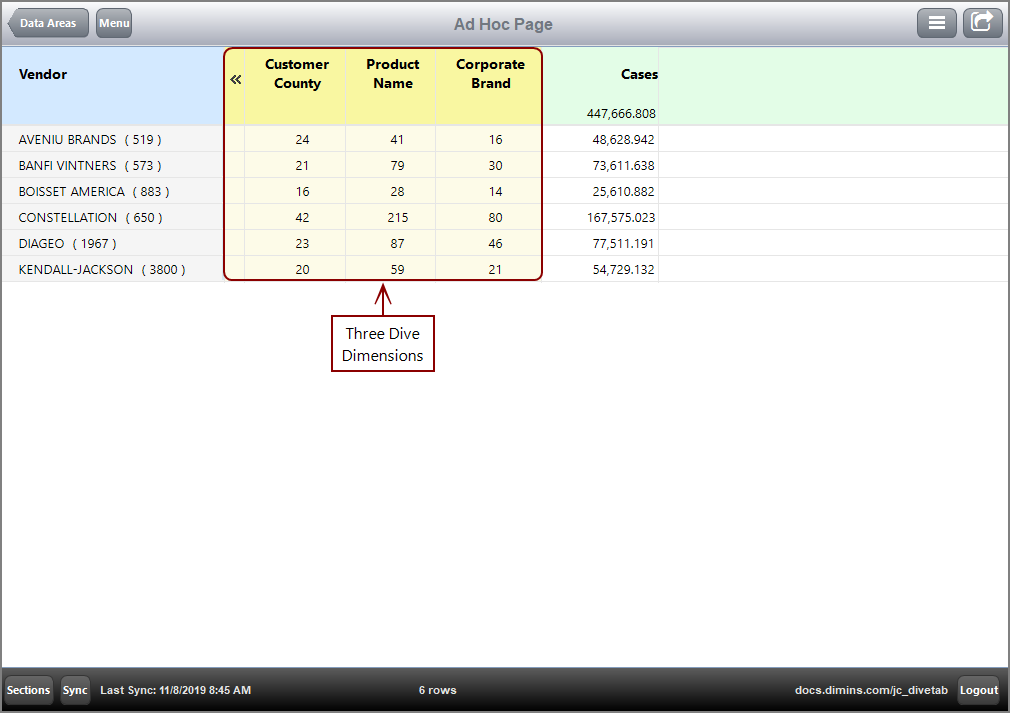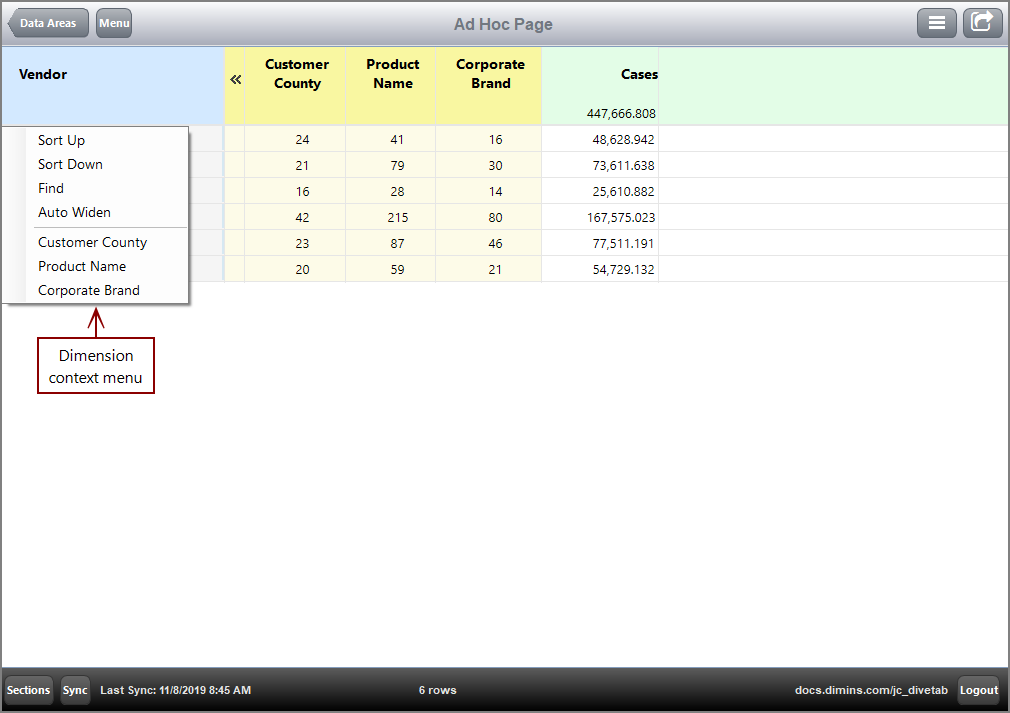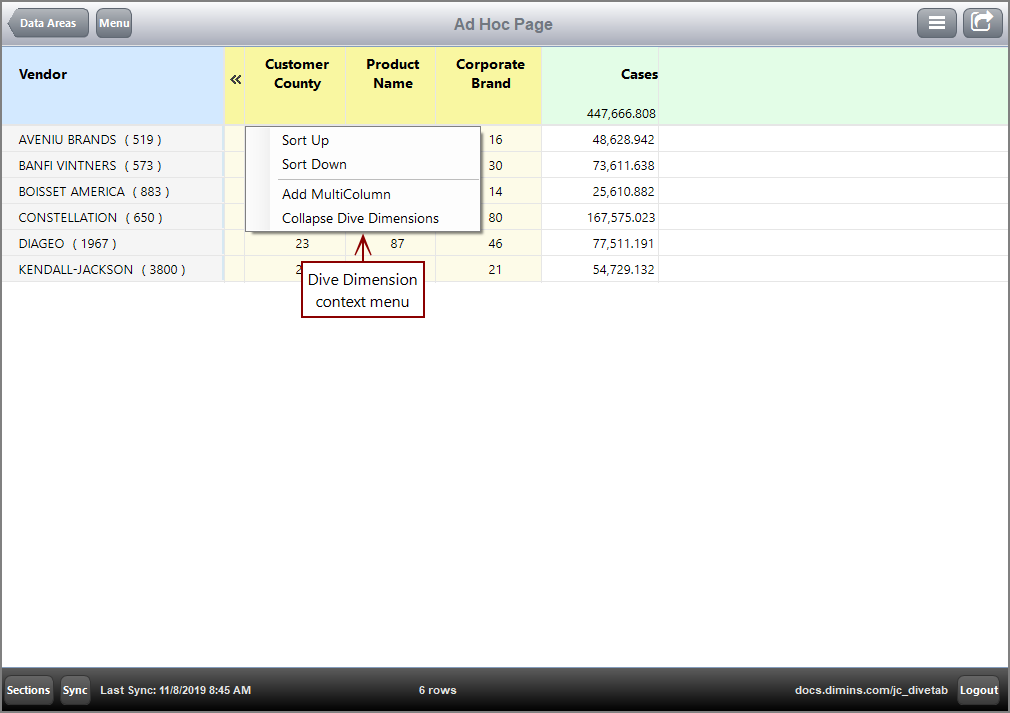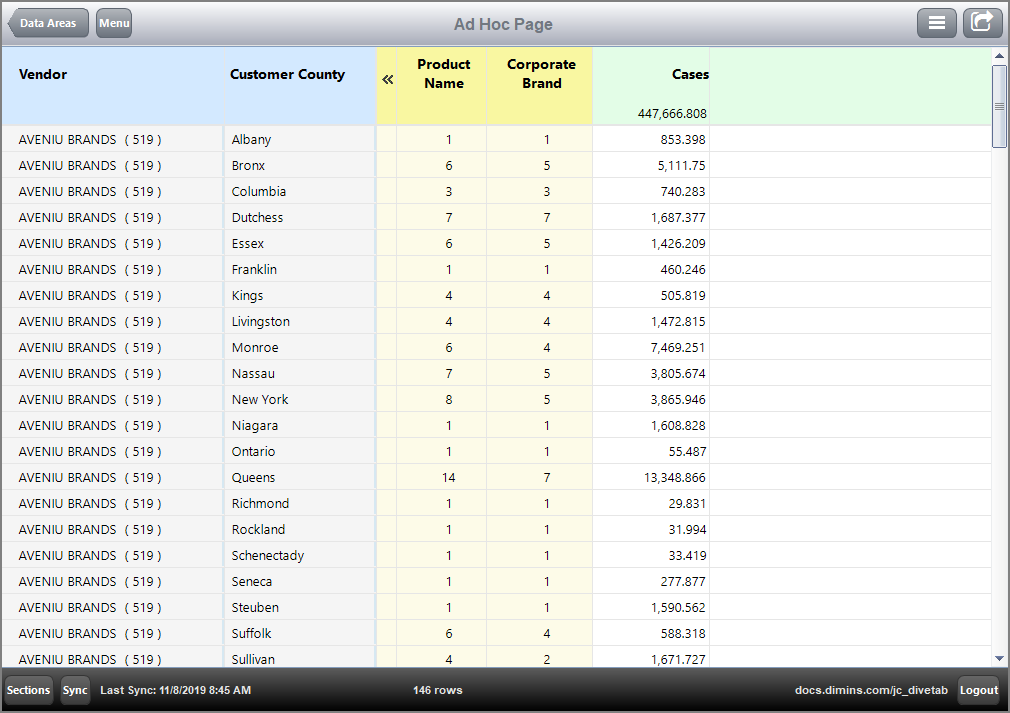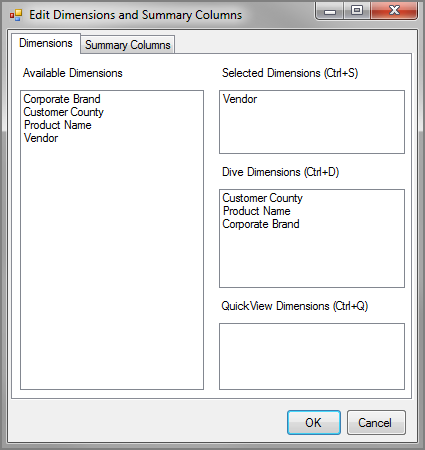The DiveTab ad hoc page (formerly called an access page) reads data from a cPlan and presents it in a predefined tabular format. Dimensions are presented on the left, dive dimensions in the center, and summary values on the right. On the PC, MultiColumns are secondary dimension columns. On the iPad, a MultiColumn is any dimension when there is more than one dimension present.
Context menus
The context menu for the dimension column includes sorting values, finding a specific value, switching with another dimension or dive dimension, and removing MultiColumns. Summary columns have a default context menu that supports sorting, ranking, or displaying a percentage or graph. If you define expand columns, the context menu includes the option to expand and collapse them.
Dive dimensions
Dive dimensions can be added and appear between the dimension and summary columns. Dive dimensions display the number of values included in the dimension that correspond to dimension value, called DimCounts. They support being added as MultiColumns and diving on additional dimension data. Dive dimensions initially appear as collapsed and can be expanded using the chevron button.
NOTE: Dive dimensions appear as dimcount-dimensions in the script.
Navigating ad hoc pages
When you dive, a breadcrumb trail is built just below the title area. These breadcrumbs are used to undo previous steps. Diving on the data presents a subset of the previous set. Unlike report pages, you can change your analysis by switching dimensions with each other and also dive dimensions; summary columns remain the same.
Editing ad hoc pages
By using the Edit function, DiveTab users can select which dimensions and summary columns to display and fulfill specific roles. You can also include dimensions and columns not initially visible but defined in the script.
Examples
Here is an example of an ![]() ad hoc page with three dive dimensions. They appear under yellow headings.
ad hoc page with three dive dimensions. They appear under yellow headings.
Here is an example of the ![]() context menu used to switch and sort dimensions.
context menu used to switch and sort dimensions.
Here is an example of the ![]() context menu used to add MultiColumns and sort Dive Dimension columns.
context menu used to add MultiColumns and sort Dive Dimension columns.
Here is an example of an ![]() ad hoc page using MultiColumns.
ad hoc page using MultiColumns.
Here is an example of the ![]() Edit Dimensions and Summary Columns dialog box, with the Dimensions tab selected.
Edit Dimensions and Summary Columns dialog box, with the Dimensions tab selected.
See also:
